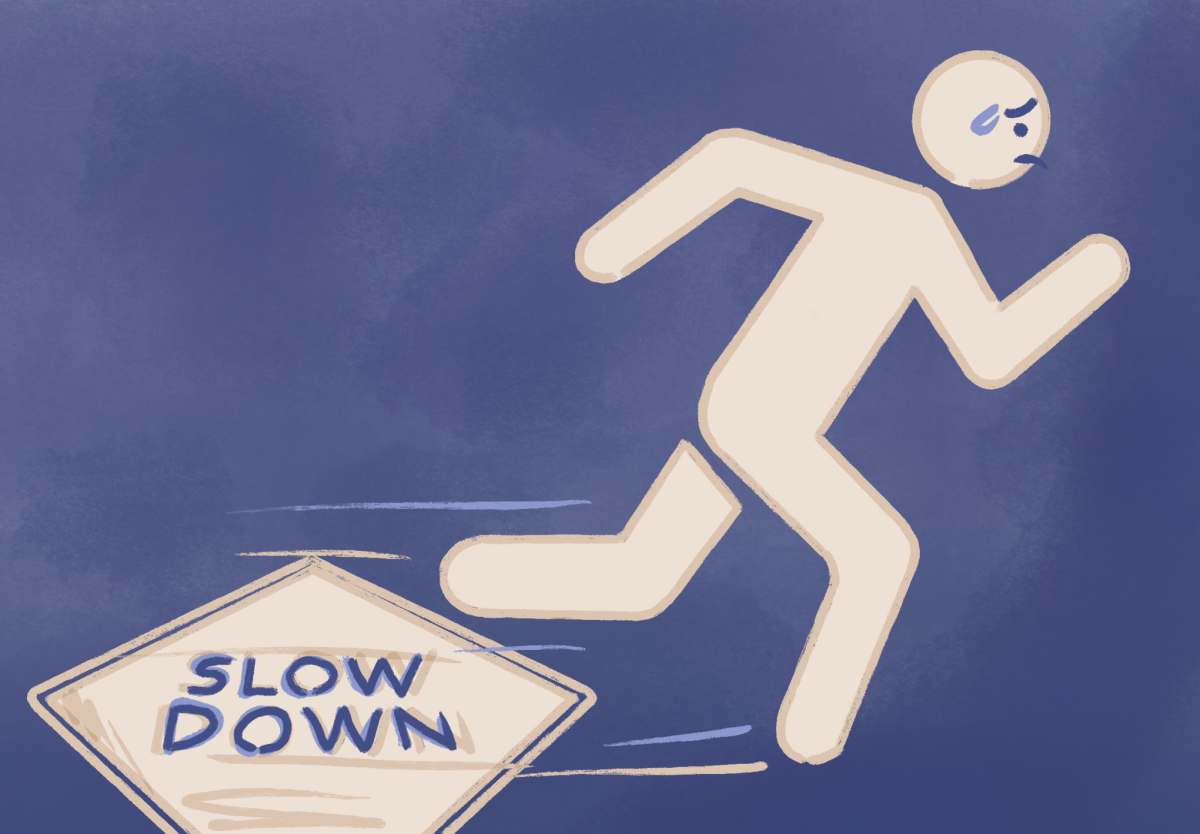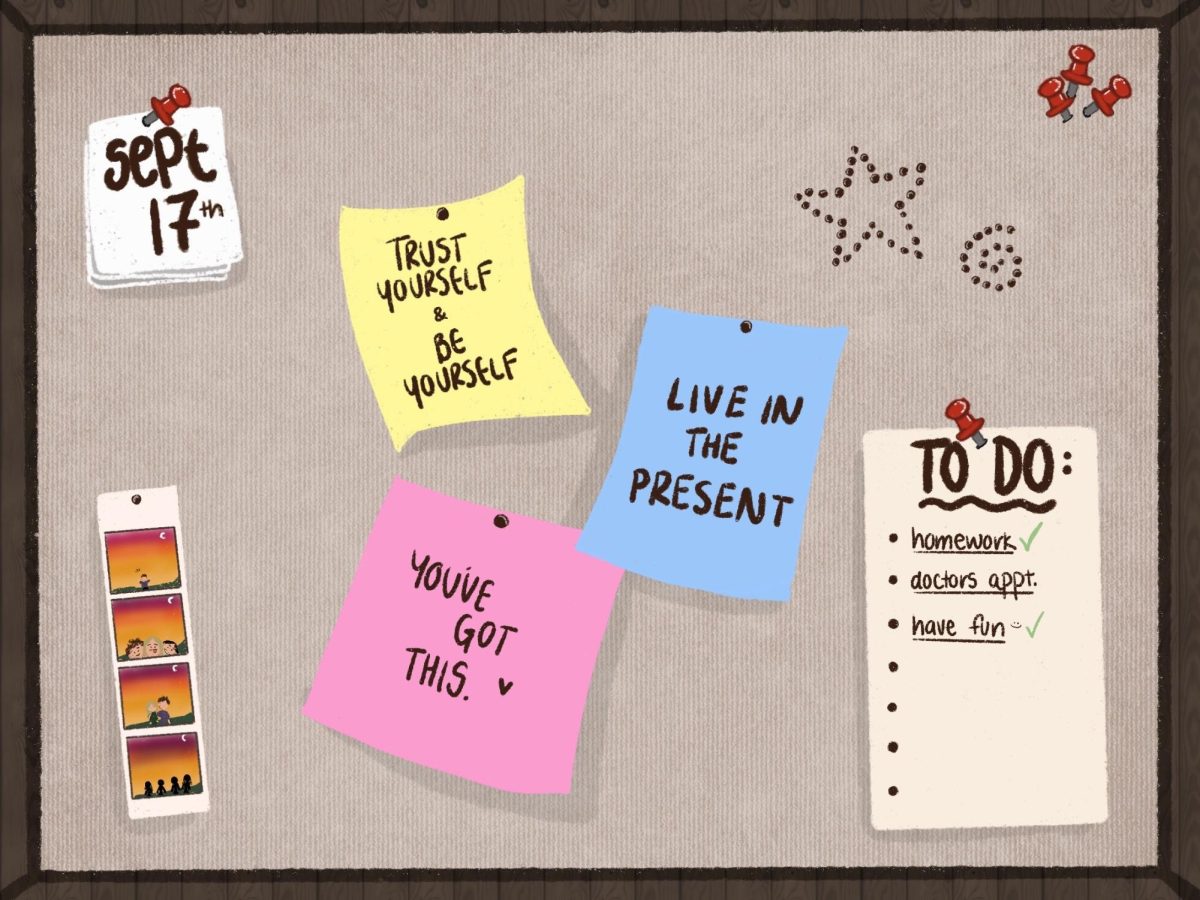For as long as I could remember, I thought that my grades determined my self-worth.
Getting good grades has always been — ever since I was in elementary school — my number one priority. I poured myself into my schoolwork, telling myself that good grades were the most important thing in my life because for me, it was.
I always felt pressure from myself and others to be perfect, to have straight A’s, and to be the role model student. I told myself that if I did not meet these standards, then I was a failure; I was just not good enough.
I have always had the need for academic validation, as if my A’s alone declared whether or not I was smart enough. I spent all my time studying, memorizing, and working, even when I felt drained.
I did not merely want a good grade; I needed a good grade to show myself that I was acceptable.
This “good grades only” mindset has been how I’ve lived my life until now, and honestly, it’s been exhausting physically, emotionally, and mentally.
The pursuit of perfection has caused me to constantly be filled with stress, anxiety, and frustration.
In the beginning, however, it was not so bad. In elementary school, academics came naturally to me, so I never saw how harmful this mindset was. It was not until middle school when I started struggling with my schoolwork that I began seeing the effects.
I had been told for so long that I was “bright” and “gifted,” so when I did not earn an A on an assignment or test, I thought that I was lesser than my peers. I assumed that my failure to get what I told myself was the only acceptable grade — an A — meant that I was a failure.
After getting into high school, it got even worse.
As the homework, tests, projects, and quizzes piled up, so did the stress to aim for perfection and straight A’s.
I put school before everything — sleep, my mental and physical health, and time with my loved ones. I became burnt out, working so hard to reach an impossible standard that I set.
Nights spent staying up until 2 a.m., having mental breakdowns, and spending all of my free time sitting at my desk studying all weekend are just some of the many things that I did when trying to reach that standard, but I thought it was all worth it if I got that A.
Everything changed though my junior year when I got my first D on my AP Calculus AB test. Even though I knew that this was a hard class, getting that exam handed back to me confirmed that I was just not a good enough student.
Seeing that letter grade for the first time made me want to take irrational actions such as crying and comparing myself to everyone else in the class who was doing well.
Looking back now, I see how dramatic I was, but at that moment, I thought that all of my hard work had gone to waste.
I was positive that I was never going to be good at math, and that I was never going to be that student I could be proud of again.
I was crushed.
I thought there was no way I was going to get into my dream college, there was no way that any teachers thought I was smart, and there was no way I had what it took to be enough for myself or anyone around me.
I was afraid of being seen as just an “okay” student. The thought that I wasn’t as perfect anymore made me feel like I let myself down. I felt like a disappointment to myself, believing my worth was tied to my grades, as if a number could define who I was.
But after taking time to reflect on myself and my grades over the summer and the past semester, I began to ask myself why I put so much value into my grades, just like many of my peers do.
Many students in our community set too high of a standard for ourselves, meaning that when we fall short, we feel like the wind has been knocked out of us.
I saw myself and others become so emotionally exhausted and burnt out while striving for a grade that I wondered what we were working for: a grade or an education?
I started to recognize that many people fear not getting a good grade so much that we begin to forget that we are students trying to learn, not be perfect.
Rather than aiming for perfection, effort and progress are equally important accomplishments that we should be proud of. School should be a place where we can make mistakes and learn how to improve our knowledge.
It is okay to be proud of your grades no matter what they are because you’ve worked hard for them. But we cannot forget to also be proud of everything else that makes up who we are as students and who we are as a whole person because our grades are not our whole identity.
In the future, even if I do not achieve the grade I wanted, I have to remember all the hours and effort that I spent trying to learn and study because that matters as well. I also have to remember that this little letter on my report card does not reflect my whole self.
It’s not easy, but by accepting the fact that grades are just one of the many factors that contribute to your achievement, you can learn to have a deeper appreciation for all the things about yourself.










Chris Krantz • Mar 31, 2025 at 11:19 am
First, I just want to say how good and how important this article is. Having taught teenagers with big dreams for many years, I have seen first-hand the experience Rita describes in her personal (and brave) account of coming to terms with what grades mean and the importance of developing a healthy perspective regarding them, something that takes years of experience (and thus pain), love and support, and the knowledge that we can fulfill even our wildest dreams without having to be perfect–that persevering furthers (PERIOD).
Years ago I watched a bright 11th grader emotionally crumple due to a math final she felt she had blown resulting in the lowest grade she’d ever gotten in a class. I didn’t ask her about it, for she seemed too devastated for my meager consolation to matter. She graduated La Salle, went on to college, got into medical school, became the doctor she’d dreamed of becoming, and that math final back at La Salle… Well, think of it this way: since then that 11th grader has taken hundreds of tests, hundreds.
Imagine that!
Thank you, Rita!
Chris Babinec • Mar 20, 2025 at 12:00 pm
What a beautiful and touching piece.
This article offers a deeply thoughtful and introspective perspective on the challenges of balancing personal ambition with the push and pull of values placed on grades by students, teachers, parents, colleges, and beyond.
The author brings a poignant mix of empathy and insight, drawing readers into a reflection on the experience of self worth outside of accomplishments or other people’s opinions.
Much like I hope to do as a counselor, the author urges us to rediscover that we are enough, just as we are, every day of our lives. We do not have to know anything, do anything, or be anything in particular to have value. Our value is inherent and we can contribute to our world quite deeply no matter our grades, our jobs, etc.
Emily • Mar 19, 2025 at 9:52 pm
Wow that really impacted how I feel about my grades! Thanks for sharing such inspirational words!